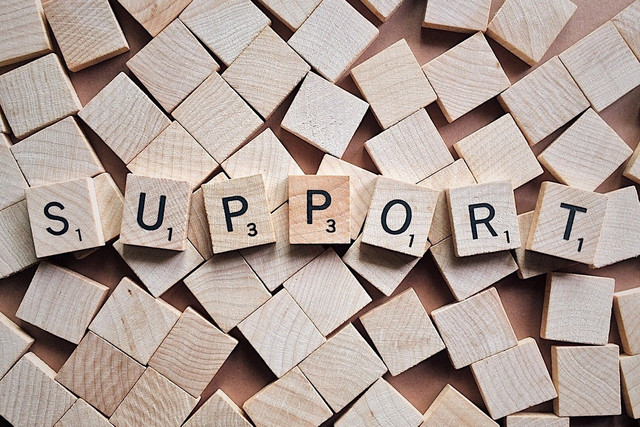
The helper syndrome is a psychological phenomenon that can put a heavy strain on both those affected and their social environment. We will explain how you can recognize helper syndrome and how you can possibly free yourself from it.
We use the term “helper syndrome” in everyday language almost inflationary. Not every person who likes to help other people suffers from this psychological phenomenon. Instead, helper syndrome is a multi-faceted problem, the origins of which usually go back to early childhood. If the problem is not recognized in time, it can also have serious consequences for those affected.
What is helper syndrome?
The term helper syndrome goes back to the psychoanalyst Wolfgang Schmidbauer. He first described the phenomenon in 1977. Schmidbauer attributes the helper syndrome primarily to a childhood in which those affected did not experience sufficient security, love and support. This in turn results in low self-esteem. Helping has become a way for these people to gain the approval and affection they were denied in childhood.
People who are affected by the helper syndrome therefore often find themselves in social professions, for example as nurses, doctors, teachers or social workers.
So the constant feeling of being needed and having to sacrifice and give up is a central part of the helper syndrome. Below we present five specific signs that could indicate that you are affected by this psychological problem. In this case, we strongly recommend that you seek professional help (e.g. in the form of psychotherapy).
Helper Syndrome: You ignore your own needs

(Photo: CC0 / Pixabay / Counseling)
Do you basically align your life with helping other people or supporting them and you no longer even notice what your own needs are? According to the psychological clinic Clinicum Alpinum, this is a characteristic indication of the helper syndrome.
As you constantly ignore your needs, which might also call for rest, stillness and relaxation, you constantly feel exhausted and drained. This can manifest itself in stress symptoms such as tension, tremors, insomnia or headaches and possibly lead to burnout.
You ignore the needs of those around you
That sounds paradoxical at first – after all, people who suffer from the helper syndrome want to support their fellow human beings. However, according to the Pro Psychotherapie eV platform, the problem is that those affected help even if the other person has not asked for it and does not want to accept or use the help. This can be stressful for people from the social environment of those affected, as they feel pushed into a corner again and again and are restricted in their ability to act freely.
The intended help may even cause more damage and then trigger frustration and disappointment on both sides.
Helper Syndrome: You don’t work on your own goals and desires
According to psychologist Doris Wolf, people with helper syndrome get so lost in their mission to help other people that they hardly have any goals of their own or neglect them badly. As a result, those affected no longer have their own purpose in life and are completely dependent on their fellow human beings.
You become codependent
The helper syndrome is often noticeable in the choice of partner. According to the Clinicum Alpinum, people with helper syndrome tend to enter into a relationship with people who can protect them strongly – i.e. people who have a low degree of independence. These are often, for example, people who are prone to addiction. This creates codependency in the relationship. This means that the person who is affected by the helper syndrome takes on the problems of the addicted partner and sometimes suffers even more from the addiction and its effects than the addict himself.
Helper Syndrome: You refuse help yourself

(Photo: CC0 / Pixabay / Wokandapix)
People who suffer from the helper syndrome see themselves solely in the role of the helper. According to Doris Wolf, this means that they are unable to accept support from other people. Because then they would leave their self-imposed role.
This aspect in turn increases the risk of exhaustion, depression and other mental illnesses.
Helper syndrome: How to put it behind you
If you suspect that you are suffering from imposter syndrome or if your environment is telling you about the phenomenon, you should first seek psychological advice. You can only get a well-founded diagnosis in direct conversation with psychologically trained experts. In order to do physical therapy, however, you have to overcome your first major inhibition to accepting help. This can feel very unusual and uncomfortable, especially at the beginning.
According to Pro Psychotherapie eV, it is important to uncover the following aspects, among others:
- First of all, you have to realize that you tend to disregard your own needs and want to go beyond a healthy level for those around you.
- An important part of the processing is also the realization that you want to help other people above all in order to experience recognition and affection yourself. You may pretend to selflessly sacrifice yourself for others. But above all, egocentric motives motivate you to do so.
- In therapy, you may then be able to work through where your urge for gratitude and appreciation comes from.
- You may find other ways to increase your self-esteem in a healthy way as you talk. It is also important to understand that you are already a full-fledged and valuable human being – even without exhausting yourself to help others.
- Also, to overcome helper syndrome, you must learn to say “no.” You can find out more about this topic here: Saying no: This is how you learn to set yourself apart.
- Finally, you should also learn methods of self-care. For example, you can do something good for yourself with relaxation exercises, yoga, meditation or hobbies in which you fully immerse yourself and, above all, support yourself on your way. Because before you can help other people again in a healthy way, you only have to offer yourself help now.
Read more on Techzle.com:
- Learning to love yourself: tips and exercises for the beloved self
- Masturbating is self-love and self-care – for both men and women
- Time pressure: how to deal with it